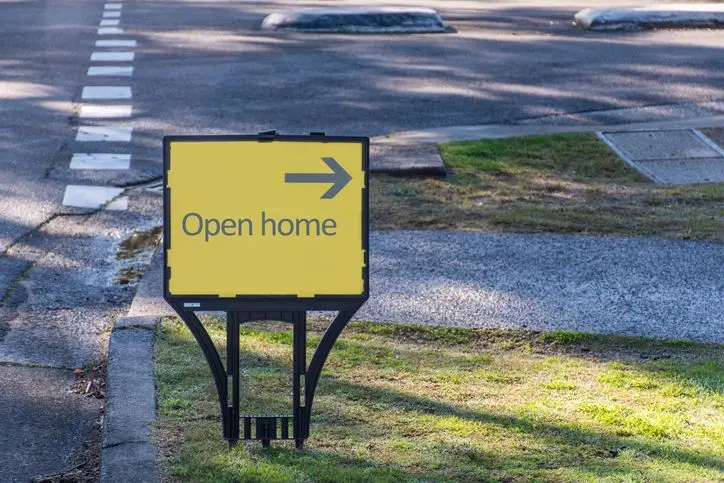
How to choose the right agent to sell your home
Finding the right agent for you can make all the difference when selling.

Selling property in the ACT comes with its own steps and market considerations. Whether you're relocating, downsizing or selling an investment, having a clear plan will help you avoid unnecessary delays and maximise your result. With the right support from an agent, you can navigate the Australian Capital Territory market with confidence.
Agent commissions in the ACT typically range from 1.5% to 2.4%, depending on your suburb, property value and the agent’s services. Use our Commissions Calculator to check average rates in your area.
In addition to commission, be sure to factor in:
Our Selling Costs Calculator can help you estimate your total costs before you hit the market.
Read the full guide on how to find the right agent to sell your home.

Please select your suburb from the drop down
Use our handy selling calculator to crunch the numbers and get an estimate.
Most properties in the ACT are sold by private treaty, which gives sellers more flexibility on pricing, conditions and timeframes. Auctions are also commonly used in high-demand suburbs of Canberra, where strong competition may lead to better sale prices.
A local agent can advise you on which method is best based on your property, timing and market conditions.
Presentation can make a big difference to buyer interest and offers. Make sure to:
A well-presented property can boost your online listing, inspection attendance, and final sale price.
Read the full guide on how to prepare your property for sale.
Your sale price should reflect current market trends and similar property sales in your suburb. Overpricing can turn buyers away, while a realistic price attracts more interest and leads to stronger offers.
If you’re selling by private treaty, your agent will help you set an asking price. For auctions, they’ll help determine a reserve price (the lowest you're willing to accept).
To get an initial idea of how much your property is worth, you can get a property report with recent sales in your suburb and an online property value estimate.
Your agent will tailor a strategy based on your ideal buyer and property type. Most campaigns include:
As in other states, you’re legally required to have a draft contract for the sale of residential property prepared before your home is listed for sale. However, there are more documents required for selling property in the ACT compared to other parts of Australia. For the full checklist, refer to the ACT Government’s guide for buyers and sellers (Chapter 12).
The standard cooling-off period in the ACT is five days. In this time, the buyer can change their minds. However, the cooling-off period is negotiable between the buyer and seller, and can even be waived.
The settlement period in the ACT is typically set by the seller and is usually 30 to 90 days but can be negotiated.
Read more on settlement and how to negotiate a settlement date.

Finding the right agent for you can make all the difference when selling.

From obvious expenses to hidden costs, get the full rundown of what's involved.

See expert predictions, and current pros and cons to help you decide.

Please select your suburb from the drop down
Remove the guesswork. Use OpenAgent to help you find, compare and shortlist the top agents in your suburb.
Selling property in the ACT? Use our free tools to estimate your costs and plan your sale with confidence.

Calculate the costs involved in selling your property and budget effectively.

Pay the right commission for your suburb and maximise your sale price.

Our 7-day email course will guide you through every step of the selling journey.
In the ACT, a tenanted property can legally be sold. However, if the tenant is still in a fixed-term agreement, the landlord responsibilities must be passed onto the buyer. A fixed-term tenancy can only be ended early if both you and the tenant agree.
In the case of a periodic tenancy, you can terminate the tenancy as long as you provide 8 weeks of notice and evidence that you will be selling the property. For more information, see the ACT Government’s guidelines on ending a tenancy.
Capital gains tax (CGT) applies when you sell an investment property or asset for more than you paid. The profit you made will be taxed at your marginal tax rate.
If you've owned the property for over 12 months, you may qualify for the 50% CGT discount. Exemptions from paying CGT typically apply for deceased estates or principal residences.
Always check with a tax professional or the ATO for specific advice. Read more on tax for selling investment property.
Selling a deceased estate in the ACT can be more complex than a standard property transaction. The executor of the will (or administrator, if there is no will) must first obtain a grant of probate or letters of administration from the ACT Supreme Court before the property can be listed for sale. This provides the legal authority to manage the estate, including the sale of any assets.
Once probate is granted, the executor can proceed with preparing the property for market. It's a good idea to consult a solicitor for legal requirements and an accountant to help navigate potential tax implications.
Selling a property on your own, also known as For Sale By Owner (FSBO), is legal in the ACT. However, you’ll be responsible for pricing, legal paperwork, marketing, inspections and negotiations. Many sellers choose to work with an agent to achieve a better price and avoid the risks of going it alone.
To sell a property in the ACT, start by budgeting for selling costs. Choose a trusted agent and decide on a method of sale. Your agent will then market the property, manage inspections, and help negotiate a sale. Once an offer is accepted, the conveyancer will help you complete contracts and guide the sale through to settlement.
Timeframes vary by location and demand. In the Canberra region, median days on market (DOM) is around 31 days. Speak to local agents or get a free suburb report for a more accurate estimate of what the DOM in your area is.
No ACT-specific seller taxes apply, but national obligations like CGT may affect you if the property wasn’t your main residence. Buyers are responsible for stamp duty.
Both methods are used, but private treaty is the most common in the ACT. Auctions can generate strong competition in high-demand suburbs, but may not be suitable for all homes. Speak with your agent to decide.
In the ACT, buyers typically have a five-day cooling-off period during which they can withdraw from the sale. This period can be waived or varied by agreement.